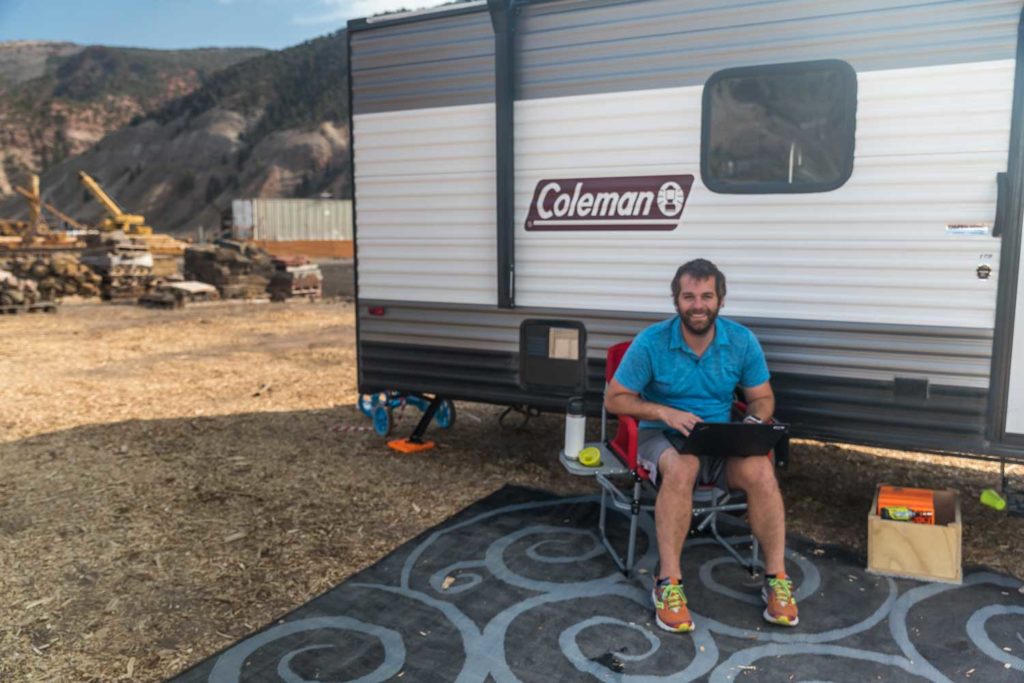When you make the decision to turn your hobby into a business, it’s exciting. You get to make money doing something you love. But it can also be intimidating. When we first started our parenting website and family travel Youtube channel, we were laser focused on the end game. So much that we didn’t think about all the impacts. And there are a lot of them. Here are some lessons we learned that can help you decide if you’re ready to turn your hobby into a business.
1. How much time can you devote to your new business?
I’m going to be straight with you. It doesn’t matter if this is your side gig or a full time thing. If you want to turn your hobby into something that makes money, you’ll need to spend a lot of time on it. Whatever time you were planning to spend on it, triple it. It will end up being a lot more work than you first envision.
When we started this website, it was meant to be something we did in our free time. We are passionate about writing, parenting, kids, photography, etc. It was just a fun thing to do. And if it only ever stays a hobby, you don’t have the pressure of spending every waking hour on it. But when you decide to turn that hobby into a business, you’re in it to win it. And it’s no longer just a casual way to spend time.

Hobby vs. business
Blogging as a hobby: you love to write, but if just a handful of people read it, it’s no big deal since it’s just something you do for fun. So you write when you have spare time.
Blogging as a business: you want to make money off your website, so you’ll need to invest time in SEO in order to get traffic to your blog. You’ll also need to spend time creating and managing social media accounts to get additional traffic. All of these traffic generating tasks can take hours and hours.
Creating product as a hobby: maybe you make beautiful handmade jewelry as a hobby. And you hand them out as gifts to family and friends. You work on crafting new pieces in your spare time.
Creating product as a business: you decide to start an Etsy shop. You’ll have orders to fill so you can’t put them off if you aren’t in the mood to create (though you could potentially work ahead). The holidays may get very busy. And if you’re looking to grow, a website and social media accounts are a good idea.
Photography as a hobby: You love taking pictures of kids or landscapes. Or food. Or travel. And you take pictures for fun whenever you can.
Photography as a business: A nicely designed website is a must. And you may have appointments if you’re photographing people. You’ll also probably invest time into learning editing techniques.
These examples are in no way meant to discourage. In fact, quite the opposite. Hopefully you get excited about all the additional things that come along with having a business. And if the idea of giving up a lot of your free time to work on your business gets you excited, then you’ve made it passed the first step.
2. Will you ever get bored of your hobby?

Serious question. Choose a hobby that you could talk about over and over again and never get bored. I could literally talk about traveling with kids or what it’s like to go through infertility treatments every single day and still enjoy it. I also love baking, but if I had to do that every day, I would go crazy.
While you can always find a way to turn your hobby into a business, should you? If your hobby is something you could talk about all day, every day, that’s a good indicator that it could make a successful business. It’s when you get bored with it – that gets you into hot water. Because then your business becomes a chore instead of something you love.
3. Have you thought about a business plan?
You just gotta get started. I’ve said it before and I’ll say it again. Otherwise, you could wind up in an endless research phase, never putting your business out there. You don’t always need a 50 page, in depth hard copy. But you should at minimum do a little research and answer some basic questions before taking the leap. Here are some things to consider before you get started turning a hobby into a business:
- Are you fixing a problem? Fulfilling a need? Creating a product people will buy? A good way to answer this is to look beyond close friends and family. Run your idea by someone a little less biased to make sure there is a need for what you plan to sell (or create).

- How will you get noticed? There are many ways to get discovered and it’s different for every business. If you’re reading this article, there’s a good chance searched for it on Google or found it through social media. We figured, this is advice we needed when just starting out, so maybe others do too. Check out people who have similar businesses and what they focus on (videos, websites, social media).
- Are there investments you’ll need to make? If you’re making a physical product, the associated costs may seem obvious, but there are a lot of costs that aren’t as straightforward. Things like equipment upgrades. Website costs. Tools. Marketing. You may not have to invest in everything up front, but something to think about if weighing different options.
Sure you can research and adjust as you go. But some initial brainstorming will make your life way easier in the long run.
4. Could you immediately describe your business to someone?
Some call this the elevator pitch. And it has tripped us up more times than I can count. If out of nowhere someone were to ask who your business is for, could you answer in 2-3 sentences? On the spot. Like me asking you now.

For example, let’s say you are talented at woodworking and you create these cool balance boards for kids. Your business may be for parents who want to avoid screens and are looking for alternative toy options. Or parents who work from home and want to keep their kids active while they are working. Either way, come prepared with an answer. You may find your next 10 customers in a facebook group of parents wanting to pull their hair out because they are quarantined with two energetic toddlers.
If it’s hard for you to quickly rattle off what you’re all about (been there!), you may want to brainstorm a bit more. Think about products, services, or content that can appeal to a specific type of person. It will make your business relatable and help you reach more people. These people will be more willing to spend money with you because you are fulfilling a specific need.
5. What do you have to give up to turn your hobby into a business?
The last stop before going all in. Make a list of what you have to gain and what you’ll have to give up. This is essentially the “is it worth it?” step. It may make you cringe a little bit, but stick with it. You may have to give up time, money or the ability to be indifferent if you don’t feel like working. But you’ll get flexibility, working from home, extra cash, and arguably the most important, doing something you love.
Sometimes it sucks, but sometimes it’s really freaking awesome

Hopefully answering these questions wasn’t completely discouraging for you. Turning your hobby into a business has its days. There are days where you don’t want to put in the work. There are tasks you have absolutely zero interest in (and why we never post on our Pinterest account). And there are times when the work will pile up and your hobby becomes a stress machine.
And when those days happen, take a step back before it ruins your hobby/business. Recharge. Play with your kids. Go out to lunch with your friends. Take a little break. This is the not-so-secret key to being successful turning a hobby into a business.
Even though the bad days can knock the wind right out of your sails, for me it’s worth it. Because I get to write about things I actually love to write about. And I’ve learned to take breaks (that was something that took forever to learn). So the unofficial 6th question: can you deal with some challenging days? Knowing that turning your hobby into a business is homework. But most of the time, fun homework.
If there’s nothing more you’d rather do and you like roller coaster rides, go for it!
And let us know how it goes. Because we’re big fans of roller coasters too.
